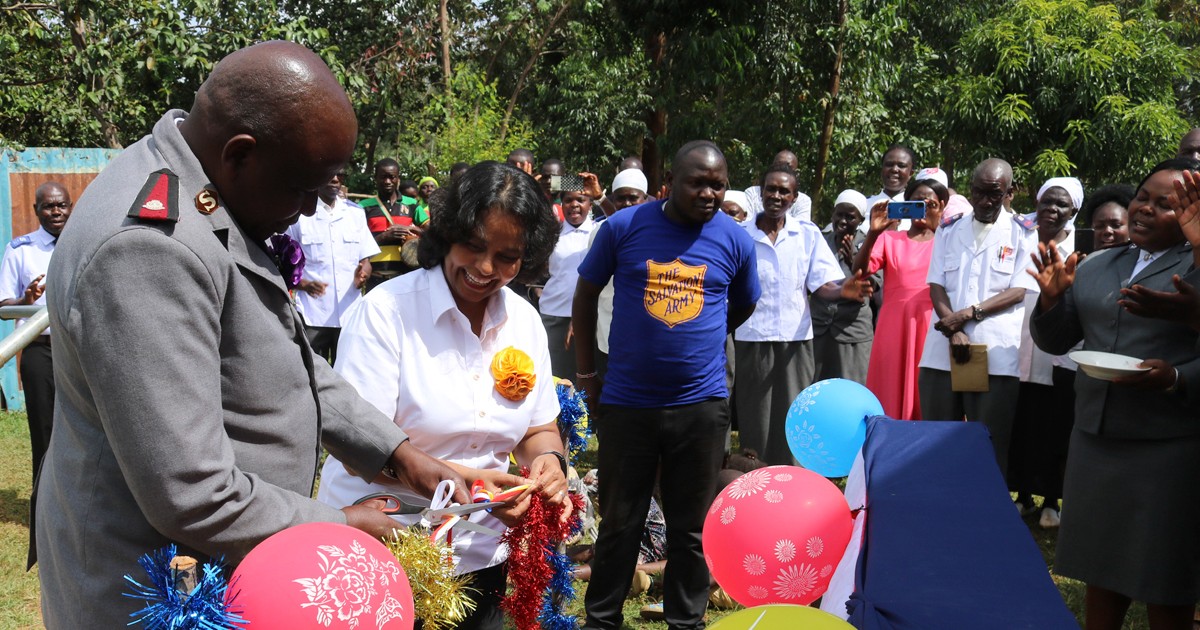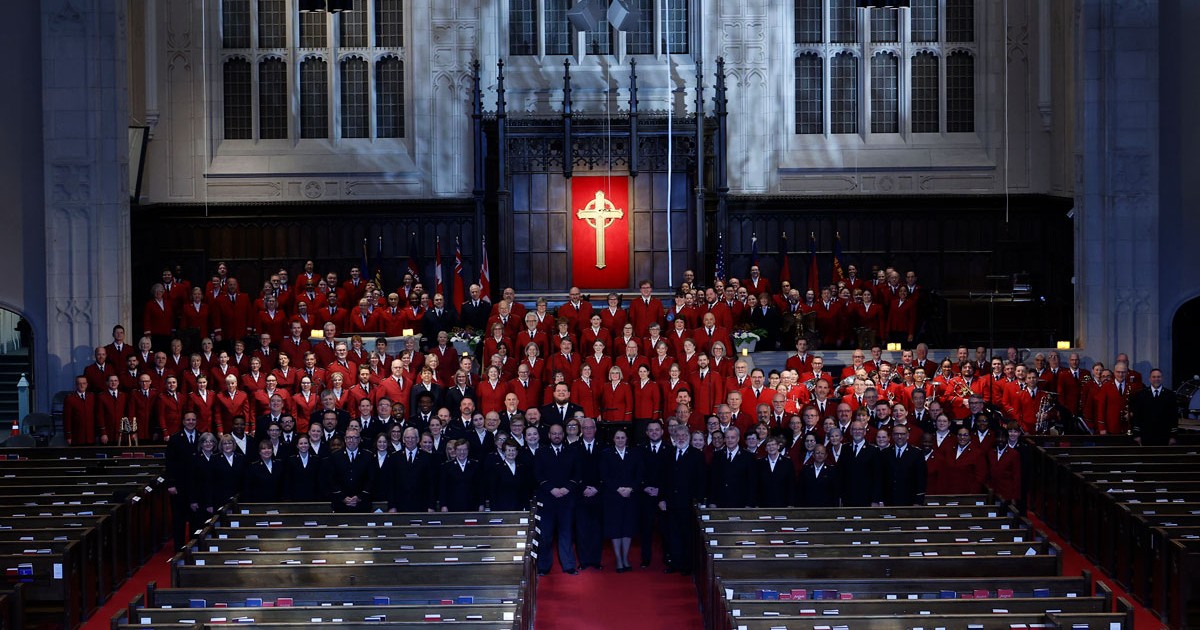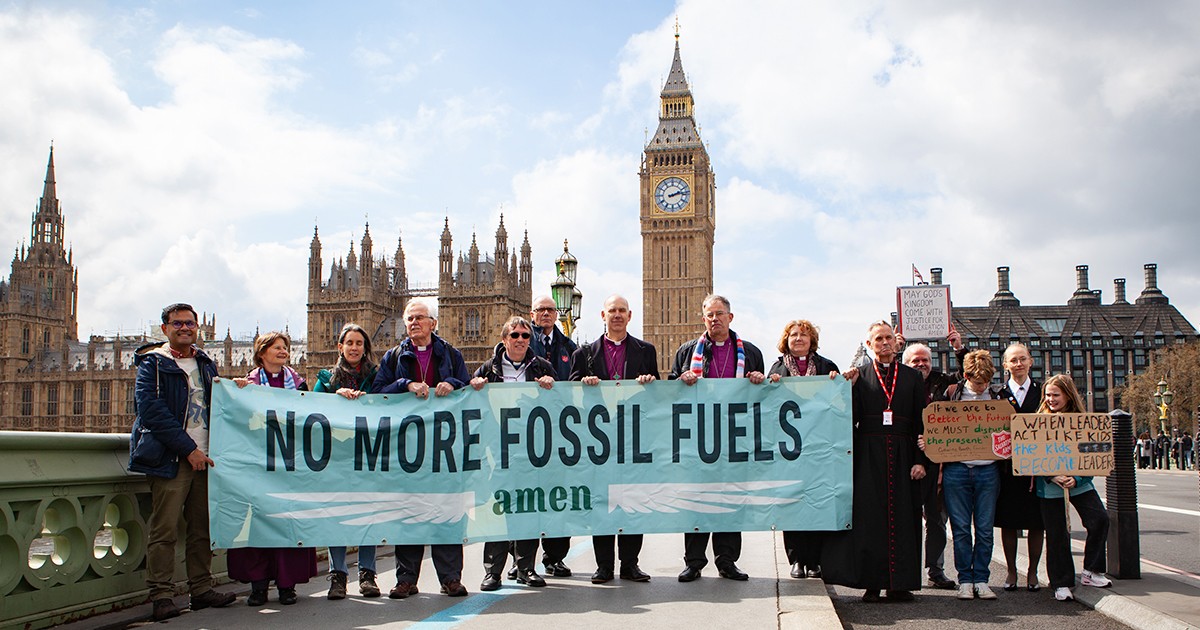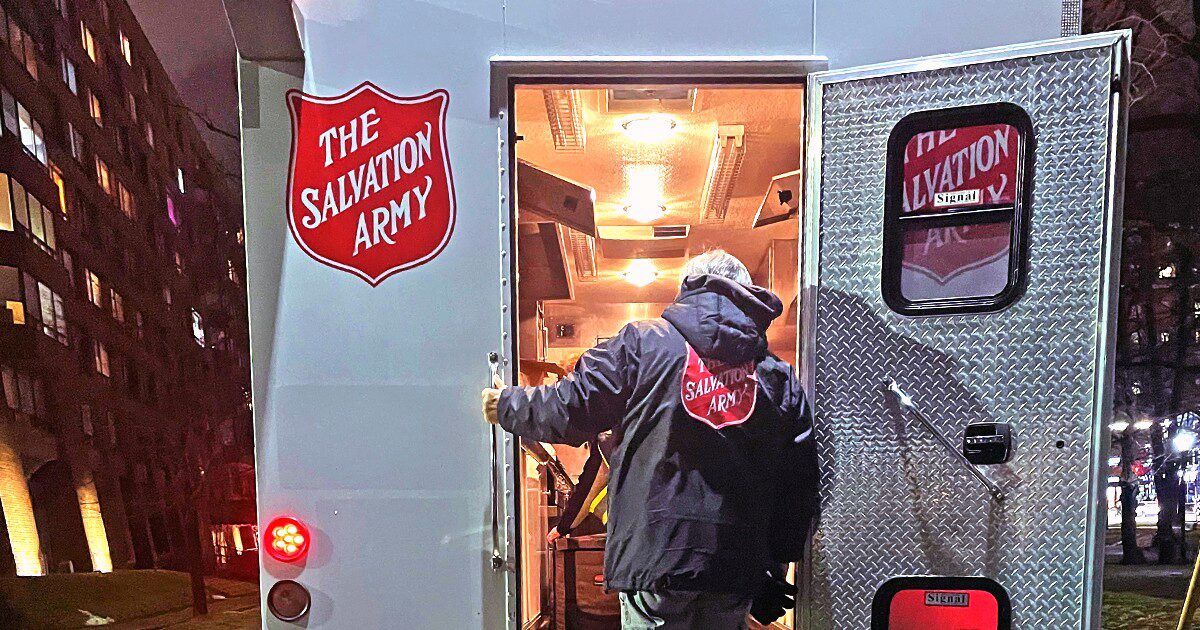Water is life. Yet 2.2 billion people around the world live without access to clean water, according to the World Health Organization. Every day, an estimated 1,000 children under the age of five die from preventable diseases related to contaminated water.
In response to this crisis, The Salvation Army in Canada and Bermuda, in partnership with local organizations, supports clean water initiatives around the globe. In Kenya, more than 18 million people—out of a population of 53 million—lack access to safe water.

“Sources of water vary from community to community,” says Major Hudson Mouhaliar, development officer, Kenya West Territory. “We collect rainwater from the iron-sheet rooftops of our houses, which is then stored in tanks. We find water in springs, drilled boreholes, dug shallow wells and dams.
“The communities around these sources benefit, as they can access the resource easily. But where water sources are far away, women and girls have to wake up early in the morning and walk long distances to fetch water.”
Because the water crisis disproportionately affects maternal and child health, the Canada and Bermuda Territory has partnered with The Salvation Army in Kenya in the development of a three-year, integrated maternal and child health (IMCH) initiative. The establishment of boreholes and water supply facilities in the IMCH project, such as pumps and tanks, is providing clean water to more than 60,000 people in 24 remote communities in western Kenya.

In my role with the international development department, I am blessed to work with these communities and have witnessed first-hand how the gift of a borehole can transform lives and restore hope.
During a recent visit, I attended the opening of one of the newly constructed boreholes in Shavihiga, a small community in Kakamega County. People were dancing and hundreds lined the street in anticipation of the official opening. It was a real joy seeing the excitement and great sense of relief as the community received the first jugs of clean, safe drinking water from the well.
Several community members expressed how much it meant to have this new water facility and the positive impact it would have on their daily life.
“We have been praying for a long time, but this is the first time in my 50 years of life that we are seeing a borehole in our community,” says Christine. “We want to see our children healthy, and having clean water means everything to us.”

Ang’aro, in Busia County, had faced a severe water shortage for many years. The only source of water was a seasonal river that disappeared during the dry season, leaving the community members with no choice but to travel for hours in search of water.“
Clean water changed everything for our people in Ang’aro village—giving them time to learn, earn and care for their children and families,” the village chief says. “The borehole is the best gift we ever received in our remote community, and it’s thanks to The Salvation Army.”
Rose, a mother of three children, used to walk six kilometres in search of water. Today, she and her children can fetch water less than half a kilometre from home.
“I can now access clean water for drinking and cooking, and for my animals,” she says. “My children no longer miss school because of stomach issues, and they have more time to study and play. Easy water collection also means I save time looking for water and save money on treatment for water-related ailments.”
The head teacher at the Ang’aro primary school, which has more than 600 students, is also grateful. “A long time ago, we had no choice but to drink salt water. It was unsafe for all of us,” he says. “With clean water, the teachers and students are no longer getting sick.”
The borehole also contributes to food security and increased nutrition by providing water for agriculture and kitchen gardening.

“My kitchen garden is always full of vegetables, bananas and other seasonal crops for my household consumption and sharing with community members at an affordable price,” says Tabitha. “My children are in better health than before. We have defeated malnutrition. I am blessed! My gratitude to The Salvation Army for sinking a borehole in our community—please do the same for other communities.”
These communities are grateful to The Salvation Army not just for the borehole but, most importantly, for providing the tools, skills and local capacity building so that there will be a sustainable supply of clean water even after the project is over.
World Water Day, held every year on March 22, is a day to take action in support of the United Nations’ Sustainable Development Goal 6: Ensure availability and sustainable management of water and sanitation for all. The Salvation Army’s integrated water initiatives in Kenya—and around the world—align with this goal, making a positive impact on the health and well-being of communities previously affected by contaminated water.
With each borehole and water supply facility, lives are saved, communities are strengthened and hope is restored.
For more information about how you can support projects like these, visit salvationist.ca/international-development.
Manjita Biswas is the program director for overseas projects in the international development department.










Leave a Comment